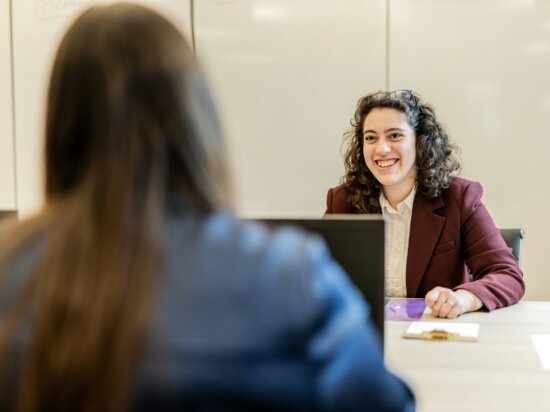The United Nations Education, Scientific and Cultural Organization (UNESCO) is an intergovernmental organization that was founded in 1945. Today its headquarters is in Paris, France. The UNESCO Institute for Lifelong Learning (UIL) is one of the organization’s eight Education Institutes. UIL is a global center of excellence for lifelong learning and the only organization in the UNESCO family with a specific mandate to promote lifelong learning.
The Institute strengthens countries’ capacities to build effective and inclusive lifelong learning policies and systems. It aims to develop learning ecosystems that work across life in every setting, benefiting everyone through building capacity at local and national levels, strengthening partnerships, and offering data and knowledge.
Challenge: Train 100,000 literacy educators
UIL is responsible for implementing an initiative focused on digital skills training for literacy educators, set forth by the Global Alliance for Literacy and the UNESCO-led Global Education Coalition.
The initiative promotes quality literacy by increasing effective use of technologies in literacy instruction and learning, during and beyond major crises such as the COVID-19 pandemic. The goal of the initiative is to train 100,000 literacy educators from at least ten Global Alliance for Literacy countries.
In early 2022, UIL developed a set of digital skills training modules for literacy educators that is tailored to adult learners. They sought to implement a learning management system (LMS) that is widely used and open source. This would ensure that countries, who were supported by UIL through their contextualization process, could host the course on their own platforms for free if they chose to, using their own national experts or at low cost. The LMS also needed to be functional in environments with low or unreliable Internet connectivity and be optimized for mobile phones.
Moodle, a UNESCO Global Education Coalition partner, was invited to support the development of the course platform for this initiative.
Solution: An intuitive and easily adaptable LMS
UIL worked with the Moodle Services team to implement the Moodle LMS. The solution gives the organization an easy-to-use, open source, adaptable platform to disseminate their digital competency training modules for literacy educators to a global audience, taking into account the local context and requirements.
The main target for this Moodle course is adult literacy educators from countries in the Global Alliance for Literacy network. It’s currently available in English and Arabic, and will be available in French and Bangla in 2023. Bangladesh, Cote d’Ivoire, Egypt, and Nigeria are currently using these modules, with plans to expand to more countries in 2023.
Moodle has been easily adaptable to meet UIL’s demands, with features such as a print to PDF add-on, customization of a database function to create a portfolio functionality, and the built-in offline functionality on the Moodle App. Most importantly, its simple user interface works well for the target audience, who generally have little to no experience with learning management systems.
Yvette Kouassy, Technical Advisor to Cote d’Ivoire’s Minister of National Education and Literacy, said, “Training educators in digital literacy responds to a major challenge of literacy programmes, namely the availability of learners whose daily workload is an obstacle to their participation at a fixed time and place. The time and place of learning will now be that of the individual learner.”
Results: A platform that empowers literacy educators
The project has been a great success thus far. UIL continues to expand the initiative in additional countries. In Egypt, UIL conducted an orientation to the Moodle-based UIL Learning Hub and introduced the platform to officials from the Adult Education Authority (AEA). This complemented UNESCO Cairo’s Moodle expert who supported the AEA with running Moodle. As a result of this collaboration, AEA now has their own basic platform on which the Arabic version of the online training modules on digital skills have been uploaded.
“Before I joined this training [conducted by UIL], I wasn’t aware of the millions of learning opportunities that are available online. I will buy a computer today and see a new future waiting for me,” said Mona Khalaf, participant of the UIL-UNESCO technology training for literacy educators in Egypt.
Another participant, Gamila El Said Abdallah, adult educator with the Adult Education Authority, commented, “I benefited so much from this training – I can now understand the significance of digital technology… I made the decision to develop myself in the field of digital technology because it is the language of the era and this training was wonderful to develop our teamwork and hear our voices.”
Through this continuing initiative, Moodle and UIL will further build the capacities of youth and adult literacy educators through training modules, and by designing digital skills monitoring and assessment tools. The initiative will also enhance the capacities of relevant national institutions, such as ministries of education and higher education, teacher-training institutions and colleges, and NGOs that train and support youth and adult literacy educators. It will also contribute to network-building among relevant literacy stakeholders and partners.
“The Moodle Services team has been wonderful to work with for the entire project. Michelle, Lauren, and John have all been extremely professional and helpful, going above and beyond to meet our requirements and ensure that this project was completed to our expectations. We would gladly work with them again.” – Jian Xi Teng, Program Specialist (Technology for Lifelong Learning)



